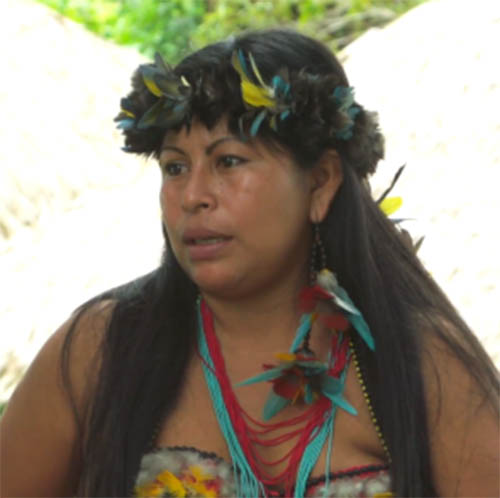BRASILIA, (Reuters) – Alessandra Korap of the Munduruku tribe in the Amazon was awarded the 2020 Robert F. Kennedy Human Rights prize for her work defending the rights, ancestral lands and culture of indigenous people in Brazil.
“This prize is not for me alone, it is for all of Brazil’s indigenous peoples that are crying out for help,” the 36-year-old said in a telephone interview. “It has strengthened our cause. We will cry out louder,” she said.
The $30,000 award was presented to her by the former U.S. senator’s daughter, Kerry Kennedy, in a virtual ceremony from Washington at which keynote speaker former U.S. Secretary of State John Kerry praised her courage.
The award draws attention to the struggle of her tribe to stop the building of hydroelectric dams on the Tapajos River, where the Munduruku live, and gain recognition for their reservation lands, Korap said.
It comes at a time when the government of far-right President Jair Bolsonaro has “dismantled” health and education services for indigenous people and turned a blind eye to illegal loggers and gold miners increasingly invading protected reservations and destroying forests, she said.
Bolsonaro defends his policies as integrating indigenous people into Brazilian society and lifting them out of poverty.
The president has turned the government’s indigenous affairs agency Funai into a “farmers organization” run by appointees by the farm lobby who are seeking to expand commercial agriculture into tribal lands, the indigenous leader said.
“The Munduruku people in Brazil are warriors … and they have survived more than 500 years of oppression, of attempts to destroy their ancestral lands and attempts to abscond with their natural resources,” Kerry said.
The former senator said the Munduruku had actively resisted “constant, violent, illegal and sometimes state-sponsored push by loggers and miners to exploit their land.”









